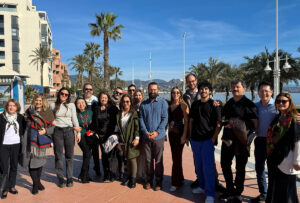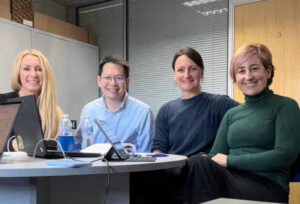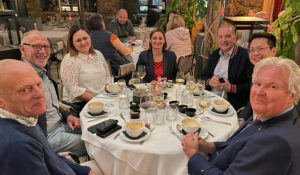Burck Smith, the CEO of StraigherLine, did a great interview where he talked about how enrolment at unaccredited education providers is rising faster than that at accredited schools. The online platform, he says, is the great leveller. There is no need to subsidise physical resources, tenured faculty, et al ad nauseum.
We have had this view at Warnborough since the mid 1990s. Interestingly, what spurred us on then was the fact that we had a huge ageing campus, which couldn’t be overhauled at a massive cost. It seemed that we had to keep putting bums on seats just to patch the roof, mow the lawns, and pay for a large staff.
Yesterday’s Course Descriptions for Tomorrow’s Jobs?
Putting all that aside, one of the best things about unaccredited providers is flexibility. I don’t mean this in an ‘anything goes’ fashion. I mean that such providers can react and respond quickly to market changes and needs. Most formal accreditation agencies require individual programmes to be designed, tested, and evaluated before being accredited. By the time all that is done, the course is already two to three years old. Would we be preparing students for the jobs of tomorrow with the course descriptions of yesterday?
Back when I was studying computer engineering, I remember asking the faculty head why we couldn’t learn C++. After all, it was in great demand in industry, it was robust – and those who knew it could charge a handsome sum even while still studying. No, he replied. We had to learn Modula 2 – a much older language used on mainframes.
Lack of Creativity
The other problem with academia is the falling-over-each-other attitude to backslap and self-praise. We create this horrendously unwieldy language that we insist everyone use – are we trying to turn everyone into lawyers? We get uptight over referencing and word counts. Somewhere along the way, we lose creativity and useability.
Most doctoral theses are designed to bore the pants off any reader. With technology today, there are other ways of assessment. Education should not exist in print/written format only – that’s 19th century education. We have determined there are plenty of ‘barriers to learning’ such as dyslexia and ADHD. We have been clever enough to find alternative ways of learning for people with such barriers. Typically, they are recognised mostly at the lower levels of education and deemed to be something that you ‘fix’ in primary and secondary education. There’s that snobbery in tertiary education that if you want to a university degree, you’ll have to like the way we do things, or lump it.
Scared Stiff?
‘If it ain’t broke, don’t fix it’ seems to be the mantra of choice. Self-preservation, more likely. Keep to the status quo, and we’ll still have our jobs. There’s that patronising saying of ‘Those who can, do. Those who can’t, teach.‘ Well, how many tenured faculty actually produce ground-breaking research these days (by themselves)? More importantly, are all these theses and dissertations we require of our students really contributing to existing or new knowledge? Or, is it just like painting by numbers – jump through enough hurdles and we’ll give you a piece of paper? (It’s OK if you never touch your thesis again – it’s a marvellous dust collector).
I think the Vocational, Education and Training (VET) sector does it best i.e. practice what you preach. Don’t teach someone how to set up an e-commerce site unless you yourself have done it successfully. How many of us went into teaching because we ‘didn’t know what else to do’?
The Accreditation Question
There’s no doubt the doyennes of education have done an excellent marketing job on accreditation. It is still the number one question on most students’ lips when they become interested in a course. In some fields, it is important as the lowest common denominator of safety or of standards. To me, it is more important what I learn, how I learn, and how effectively I can apply that knowledge than the badge I get to wear. Some of our most brilliant minds didn’t attend university or do accredited courses. Those courses were probably too antiquated for them!
Is accreditation going to go the way of the dodo? Nah. There’s too much money to be made, and it keeps people in jobs. Nevermind if they are yesterday’s jobs.
Dr Julian Ng
Originally posted on LinkedIn.




